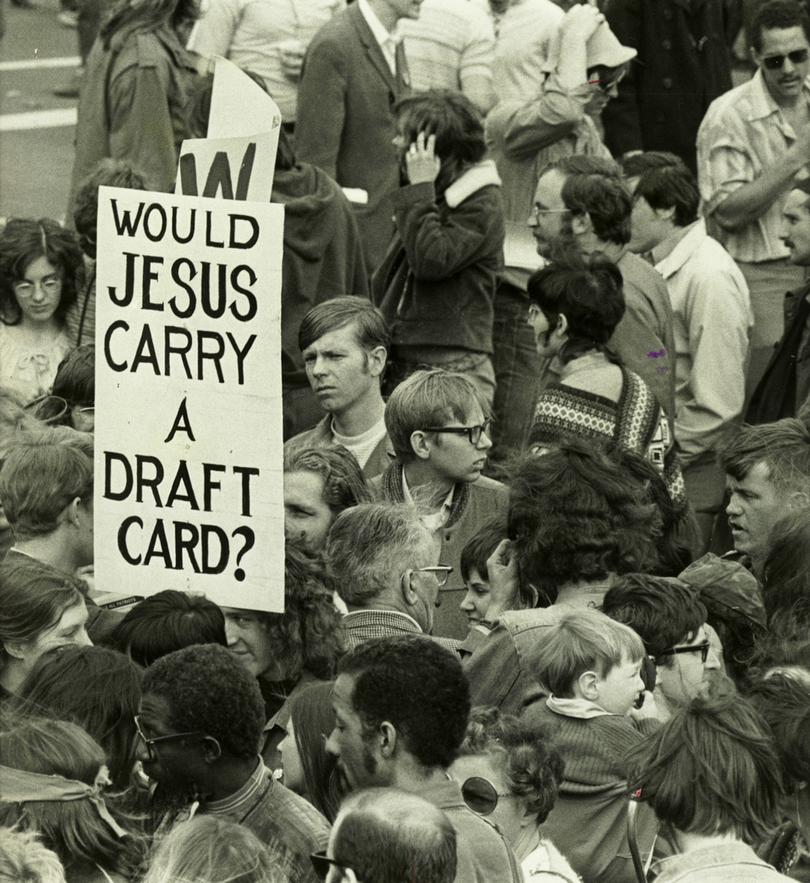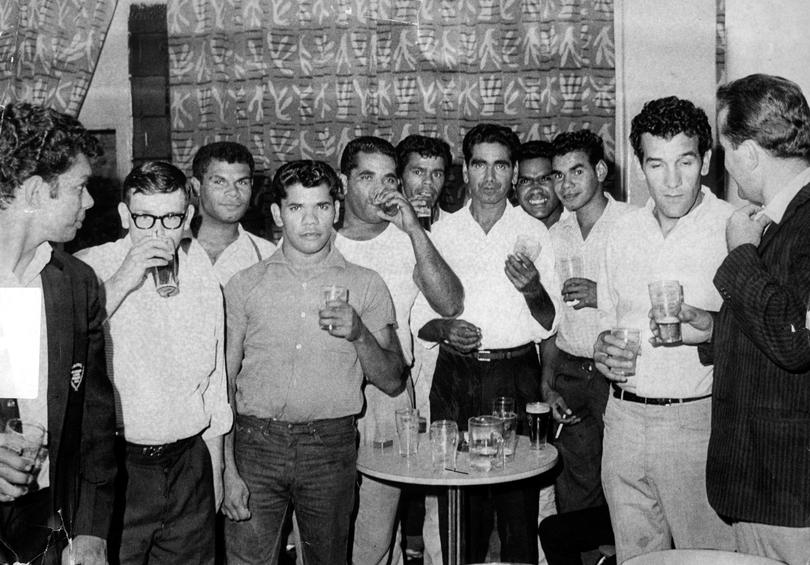Michael Usher: Professional protesters are all style, with no substance
Whether it’s pro-Palestinian protesters who gate-crashed Sydney’s Mardis Gras, or eco-warriors hell-bent on disrupting peak hour — they’ve all got one thing in common.

I’ve never marched in protest. It’s not that I haven’t been motivated to demand change, or deeply moved to debate a controversial view. I just haven’t been driven to join a rally, chant repetitive slogans or livestream a grievance.
That may be a downside of the job. Participating in any of the above could be job-ending. Not a good look for someone trained to publicly straddle that very long, sometimes broken, impartial fence line.
But I just don’t think I’m moved to demonstrate at the expense and inconvenience of other people.
Sign up to The Nightly's newsletters.
Get the first look at the digital newspaper, curated daily stories and breaking headlines delivered to your inbox.
By continuing you agree to our Terms and Privacy Policy.What did the eco-protesters prove by blocking Melbourne’s West Gate bridge other than catching the traffic and transport police off guard?
What did the Palestinian protesters prove by gate-crashing Sydney’s Mardi Gras, other than taking the shine off a night trying to honour two slain gay men?
Watching the West Gate drama unfold as I happened to be in Melbourne, I was struck by a few things in their strategy. Clever, no doubt. Disruptive, absolutely.
I can only imagine the cloud of expletives filling the transport management centre, as they watched their banks of surveillance screens, fill with jammed traffic and furious drivers at the wheels of vehicles on a road to nowhere.
We’ve learned at least two of these eco-warriors are pretty much pros at this. They’ve been caught before doing this in Sydney, where the Harbour Bridge in morning peak hour is almost always under police guard to prevent this.

But what did they prove in Melbourne?
Did politicians rush to amend policy? Did some of those trapped in their cars, days ruined, tap the steering wheel in thought and abandon their fossil fuel-dependent lives?
No, none of this happened. People got mad, politicians turned a blind eye, most ranted about the protesters being pests, and we all moved on.
It’s the same with the pro-Palestinian activists who infiltrated Oxford St. They didn’t win a single person over with that stunt, and they certainly didn’t shift the political dial here to better help Gaza’s suffering people.
Perhaps the only other point of protest this week worthy of some comment could be that of Paul Keating.
Once withering with his words and wit in Parliament, these days he’s more nark, nipping at Anthony Albanese’s heels.
His tools of protest are choice words and uncomfortable truths. But like the comrades on the West Gate Bridge, the Honourable Mr Keating wins a lot of attention and headlines with his political takedowns.
But do they lead to change? No, not really. Are they relevant? It doesn’t seem so.
Grain of sand under the skin of Labor’s policymakers today? Absolutely.
But I could also see every new missive being met with eye-rolling within Cabinet.
But it is protest, and it’s thought-provoking and there is something about a former prime minister being an active group-think objector, non-toady type, that is equally entertaining and admirable.
But what do modern protesters achieve?
Some, like Extinction Rebellion prove their strength with these stunts, it’s fair to say.
They get around the rules and the rule-makers. They no doubt embolden the true believers in their ranks and prove to their international members that they are part of a genuine movement. Perhaps they even enlist a few more recruits, and inspire the next daring disruptor.

But I’m not condemning protesters. I may not be that person or live in a time that inspires me to disrupt, but I just question the tactics that sometimes seem self-serving, versus society-changing.
There is no doubt that the periods of great protest in our history have genuinely changed lives and ended great injustice.
One stand-out example, and appropriate on the eve of International Women’s Day this Friday, is the women’s suffrage movement.
It is one of the most successful protests in Australia. Decades of peaceful and determined campaigning for equality by thousands of women, ultimately proved successful in 1902, winning the right to vote and stand in Federal elections.
Our own civil rights movements used protest to begin change.
Charlie Perkins lit a fuse in 1965 with the Freedom Rides. He and a group of University of Sydney students travelled through regional NSW protesting the treatment of First Nations people and exposing systematic racism.
A few years later in 1972 the longest running protest would begin.
The Aboriginal Tent embassy was established with a simple beach umbrella on the lawns of Old Parliament House. It would evolve over the years and endure. A reminder to the decision-makers on the hill above, that a lot more needs to be done for the rights and lives of First Nations people.

The anti-war protests of the Vietnam era rallied left, right and in between once conscription cruelly plucked young men out of everyday Australian life, and forced them into the unforgiving jungles of a faraway, and futile war.
The origins of Mardi Gras weren’t about crimes overseas, but brutal crimes in our own backyard against gays and lesbians, who risked jail or brutality for just being themselves. A hideous time.
These are all great historical injustices protested. Some successfully, some still ongoing. Some peacefully, some forcibly. They made noise and forced people to think hard and change their minds.
But they weren’t ratbags or pests or professional protesters. They didn’t ruin other people’s days to change the day. They didn’t hijack or infiltrate or drown others out with anger.
Protest should be passionate and powerful. But it must have a point, it must turn policy around and serve the cause, not simply serve the posturing activists pushing that cause.
